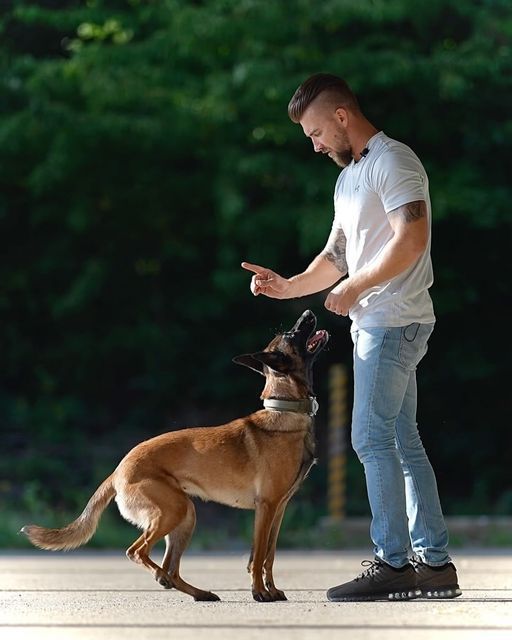In the vibrant, fast-paced environment of Los Angeles, dog owners often seek immediate solutions for behavioral challenges. While initial training sessions can lay a strong foundation for obedience and address pressing issues, true behavioral change and lasting harmony with your canine companion often require more than a few weeks of instruction. The most effective dog trainers Los Angeles understand that long-term behavior support is not just a luxury, but a critical component for sustained success, especially when dealing with complex or deeply ingrained habits.
Why Long-Term Behavior Support Matters
Dog behavior is dynamic, influenced by age, environment, health, and life changes. What works today might need adjustment tomorrow. Here’s why ongoing support is crucial:
- Behavioral Relapse: Without consistent reinforcement and guidance, dogs can regress to old habits, especially under new stressors or distractions.
- New Challenges Emerge: As puppies mature into adolescents, or adult dogs encounter new experiences (e.g., a new baby, a move, another pet), new behavioral issues can surface that require fresh strategies.
- Complex Issues Require Sustained Effort: Problems like reactivity, severe separation anxiety, or fear-based aggression rarely resolve after just a few sessions. They demand continuous monitoring, adjustment, and reinforcement over time.
- Building Lasting Habits: Just like humans, dogs need consistent practice and repetition to solidify new behaviors. Long-term support ensures owners have the tools and accountability to maintain this consistency.
- Owner Empowerment: Ongoing guidance empowers owners to become more skilled trainers themselves, better equipped to understand and respond to their dog’s evolving needs.
What Does Long-Term Behavior Support Entail?
Effective long-term support from an LA dog trainer goes beyond the initial training package. It often includes:
- Scheduled Follow-Up Sessions: These can be in-person refreshers, virtual check-ins, or even group “proofing” classes in distracting environments like parks or urban settings.
- Customized Maintenance Plans: The trainer provides a detailed plan for daily practice, environmental management, and continued reinforcement to ensure behaviors stick.
- Ongoing Communication Channels: Access to the trainer via email, phone, or messaging for quick questions, troubleshooting minor issues, or celebrating successes.
- Addressing New or Evolving Issues: The ability to consult with the trainer when new behaviors arise, preventing them from becoming deeply entrenched problems.
- Advanced Training or Proofing: For dogs that have mastered basic skills, long-term support might involve advancing to more complex commands, off-leash reliability, or specialized skills.
- Community or Group Support: Some trainers offer alumni groups, workshops, or online communities where owners can share experiences and receive collective advice.
Scenarios Where Long-Term Support is Essential
While all dogs can benefit, certain situations particularly highlight the need for ongoing trainer involvement:
- Reactivity or Aggression: These complex behaviors require careful management and continuous counter-conditioning. A trainer’s long-term guidance is invaluable for safety and progress.
- Severe Separation Anxiety: Managing this often requires a multi-faceted approach, and a trainer can help adapt strategies as the dog’s comfort level changes.
- Fear-Based Behaviors: Building confidence in a fearful dog is a slow process that benefits immensely from consistent, gentle guidance over an extended period.
- Adolescent “Regression”: Many owners find their well-trained puppy suddenly “forgets” everything during adolescence. A trainer can help navigate this challenging phase.
- Dogs with a History of Trauma: Rescued dogs with unknown pasts may exhibit unpredictable behaviors that require patient, long-term support to overcome.
- Multi-Dog Households: Dynamics between dogs can shift, and a trainer can help mediate new tensions or reinforce positive interactions over time.
Choosing an LA Trainer for Long-Term Support
When selecting a dog trainer in Los Angeles with an eye towards long-term support, consider these qualities:
- Commitment to Positive Reinforcement: Ensure they use humane, science-based methods that build trust and a strong bond, as these are the foundation for lasting behavioral change.
- Clear Communication and Responsiveness: The trainer should be accessible and able to explain concepts clearly, adapting their communication style to your needs.
- Flexible Support Options: Inquire about their follow-up packages, virtual options, and how they handle ongoing questions. Do they offer different tiers of support?
- Emphasis on Owner Education: A good trainer empowers you to understand why your dog behaves a certain way and how to respond effectively, rather than just giving commands.
- Professional Development: A trainer committed to long-term success for their clients is often also committed to their own continuing education, staying updated on the latest behavioral science.
- Local Knowledge: An LA-based trainer will understand the specific challenges and resources available in the area, from busy parks to local pet-friendly establishments.
Conclusion: A Partnership for Life
Long-term behavior support from a dedicated dog trainer in Los Angeles transforms the training process from a temporary fix into an ongoing partnership. It acknowledges that living with a dog is a journey, not a destination. By investing in this continuous guidance, you’re not just training your dog; you’re building a resilient, harmonious relationship that can adapt to life’s changes, ensuring a happier, well-adjusted companion for years to come.




